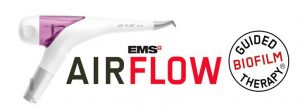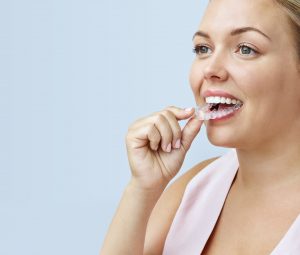Preparing to get pregnant
Many women prepare themselves for pregnancy by doing such things as taking folic acid, reducing alcohol consumption, quitting smoking, saving finances, and getting regular exercise. Additionally, it’s important to prepare your mouth to avoid dental problems while pregnant. It can be a good idea to have a dental check-up and even a hygiene appointment while planning your pregnancy so that any teeth and gum issues can be treated.
Morning sickness
One of the early identifiers of being pregnant may be morning sickness, and sometimes it can be triggered by trying to brush your teeth. However, morning sickness may be present at different stages of your pregnancy and induced by different triggers. Vomiting during pregnancy can have a dissolving or erosive effect on your dental enamel as gastric acids cause enamel to become softer. After vomiting, rinse your mouth with water or a baking soda rinse to help neutralise the acid. Wait 30 minutes before brushing your teeth so you don’t damage the softened enamel.
A good way to protect the teeth from dental erosion and dental decay during pregnancy is to maintain elevated levels of calcium and phosphate in the saliva. Talk to our dental practitioners about what is available to help you do this.

Gum health
Increased levels of hormones (oestrogen and progesterone) during pregnancy can cause a heightened risk of gum-related issues.
Symptoms of gingivitis (early gum disease) include redness, swelling, and possible bleeding of the gums particularly when eating or brushing. You can lower your risk of gingivitis through good oral hygiene and regular visits to the dental hygienist. Good oral hygiene may be difficult to maintain during pregnancy, particularly if you’re experiencing morning sickness, so speak with us if you would like any advice on how to look after your teeth and gums at this time.
Pre-existing periodontal disease (gum disease) can cause the gum to pull away from teeth, opening up spaces for bacteria to attack soft tissue and bone surrounding your teeth, if left untreated. Apart from tooth loss, periodontal disease has been associated with preterm birth and low birth weight, which has significant health risks involved for the baby.
Some woman may develop a gum growth during pregnancy called a pregnancy granuloma which may bleed very easily. It is very important to try and maintain good oral hygiene around these growths. They are usually just left alone and observed, unless they bleed or interfere with chewing. Often they will go away on their own after childbirth but sometimes they may need to be removed.
Diet
Having a nutritious diet is very important during pregnancy. While you may have certain cravings, keep in mind that sugary foods and acidic drinks may increase your risk of dental decay. They’re also often called ‘empty calories’ as they don’t provide many nutrients while adding to your energy intake.
As baby starts getting bigger, you may find yourself eating smaller portions more frequently for comfort. However, this can also put you at a higher risk of decay. Make sure you drink plenty of water (instead of acidic drinks) to help wash sugars off the teeth. It is also important to eat and drink plenty of calcium to help your baby’s developing teeth and bones – go for skim dairy products such as milk, yoghurt or cheese, keeping an eye on the sugar and salt content.
Visits
It’s fine to attend your regular dental exam and hygiene appointments while pregnant. In fact, we encourage you to do this to help you maintain optimal mouth health. We typically recommend that have a hygiene visit before conceiving, avoid having one during your first trimester, and continue any required visits from the second trimester onwards. Fillings and emergency appointments are fine all throughout pregnancy due to safety precautions which we follow strictly.
Whitening
There is limited research as to the effect whitening products can have on your developing baby. We suggest not performing or undergoing any whitening treatments during pregnancy or breastfeeding.
After the birth of your baby
After baby is born taking care of your oral health may still require a little bit more effort, especially while breastfeeding or looking after an active toddler. Using the above information may help you lower your risk of oral health issues in this time – speak to one of our friendly dental hygienists if you would like some more information and tips.
Babies’ teeth
If your baby is born in the Greater Wellington region, they will be enrolled for care with Bee Healthy or, alternatively, you can enrol them online at www.beehealthy.org.nz or on 0800 825 583. Dental care is free (publically funded) from birth until they are 18. During their infant and primary years, dental therapists will see your child at their local dental hub or at school with Bee Healthy. When they reach high school they can start visiting us to continue their care. Generally, children in the Bee Healthy program will have their first dental exam after their second birthday.
To speak to someone in our Wellington based team, feel free to contact us




